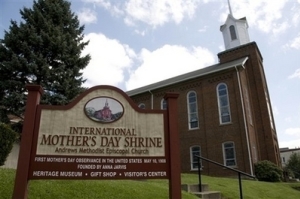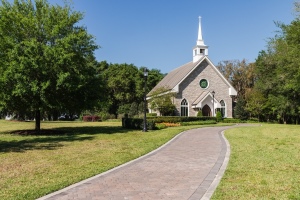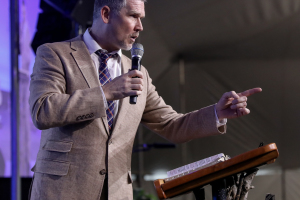Trump, The Power of Positive Thinking and American Evangelicalism
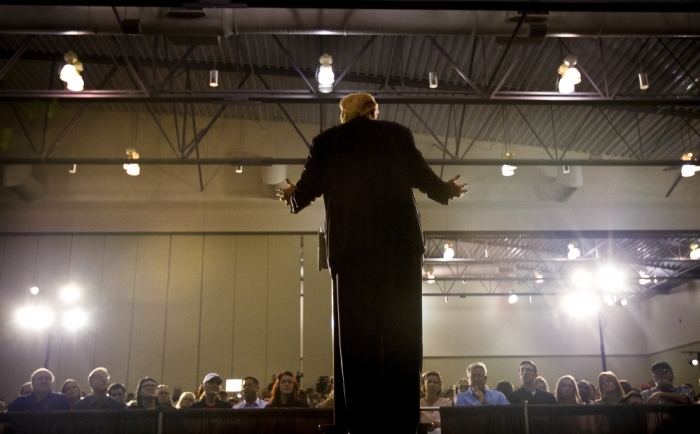
In a question and answer session in Dubuque, Iowa, Republican presidential front-runner Donald Trump said, "I love the Bible. I'm a Protestant. I'm a Presbyterian. I went to Sunday school."
He went on to identify New York's Marble Collegiate Church as the place where his religious identity was formed under the teachings of Norman Vincent Peale. The famous author of The Power of Positive Thinking so captivated the young Trump that, Trump said, "you hated to leave church."
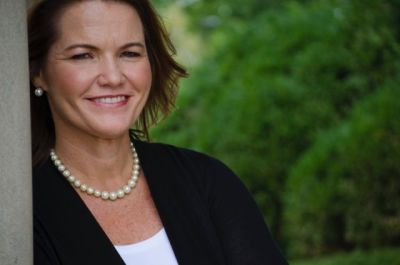
Peale was very much the Joel Osteen of his day, which may be why Trump sees his stock rising among a sector of American Evangelicalism.
Trump has said that he's winning support from Evangelical Christians who he describes as ""incredible people who are really smart, and they want to see our country thrive."
But exactly who is he talking about? The Tea-vangelicals? The social-justice evangelicals?
Trump's "Evangelical" supporters are the Christmas-church-going, Protestant work-ethic, Manifest Destiny believing, can-do capitalists. They are in every denomination and none. They think of themselves as Christians but they see no real need to have every aspect of their lives aligned with an arcane morality. Trump is tapping into the spirit and power of positive thinking that pervades the teachings of modern cultural evangelists like Oprah Winfrey and Joel Osteen.
Trump remembers this as pastor Peale's philosophy, but most today know it by its echoes in the "health and wealth gospel." If you listen, you can hear it in almost every line of Trump's "I'll make America great again" platform. It resonates with the innate desire within every human to rise, be raised, and live a life that is worthy of their calling.
Theologically, it misses the mark, but politically it's cat-nip to millions who see themselves as Bible-loving Protestants who went to Sunday School when they were kids and hold out hope for a better America.
For 100 years big American celebrity personalities have been knitting the power of positive thinking into our cultural fabric.
Athletic coaches like UCLA's John Wooden (1910-2010) who said "things turn out best for the people who make the best of the way things turn out."
Business coaches of every American generation like Zig Ziglar (1926-2012), Anthony Robbins and Seth Godin.
Ziglar said "you cannot tailor-make the situations in life but you can tailor-make the attitudes to fit those situations."
Robbins said, "Human beings have the awesome ability to take any experience of their lives and create a meaning that disempowers them or one that can literally save their lives."
Godin said, "Optimism is the most important human trait, because it allows us to evolve our ideas, to improve our situation, and to hope for a better tomorrow."
Social coaches like Oprah Winfrey, who said, "the greatest discovery of all time is that a person can change his future by merely changing his attitude."
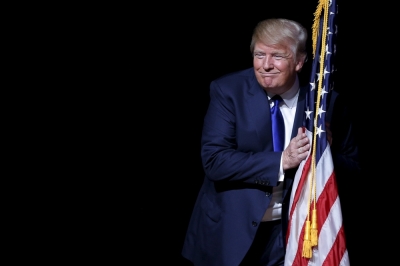
Trump is dishing up what Americans have been programmed to crave: positive American Protestantism. It's more Mahatma Gandhi than Jesus Christ but most Americans don't know enough of the Bible to recognize the difference.
It was Gandhi, not Jesus, who said, "Man often becomes what he believes himself to be. If I keep on saying to myself that I cannot do a certain thing, it is possible that I may end by really becoming incapable of it. On the contrary, if I have the belief that I can do it, I shall surely acquire the capacity to do it even if I may not have it at the beginning."
Og Mandino (1923-1996) wrote a book entitled The Greatest Salesman in the World. My guess is that Trump has read it.
In it, Mandino writes, "Welcome every morning with a smile. Look on the new day as another special gift from your Creator, another golden opportunity to complete what you were unable to finish yesterday. Be a self-starter …. You were not born to fail."
These are the things we want to believe about ourselves and our nation and Trump is striking that chord.
Trump never comes right out and says that he's running on a "Protestant work ethic/Spirit of Capitalism" platform, but that's the infrastructure undergirding his mammoth personality. He sincerely believes what Peale and now Osteen preach. It resonates with generations of Americans who otherwise share no commonality. The reason he gets away with so many things that are considered non-politically correct is that he's saying so many other things that ring the deeply ingrained "Protestant work ethic/Spirit of Capitalism" bell that Max Weber identified more than 100 years ago.
We don't consciously remember Weber nor even Peale. But we channel them all day long in every variety of coaching. From ball fields to board rooms to ministries the "can do" power of positive thinking parroted by parents, teachers, comedians, pastors, and even eight years ago by a "hope and change" candidate that became President, is projected by candidate Trump.
Trump doesn't speak to the thin veneer of compulsory sensitivity training we've all endured. He speaks to the bones of who we are: people who love the Bible, are Protestant, and went to Sunday School. It doesn't matter so much that he does not live a Biblical ethic in his personal nor professional life. It doesn't matter that he fails to treat people as if they are all equally made in God's image. What matters is that it satisfies the appetite developed by a cultural "can do" mantra.
People are tired of hearing that America "can't." Like the little engine that could, we know in our heart of hearts that we can! "Yes, we can!" Sound familiar? Resonate with something in you so deep you didn't even know it was there anymore? Yep. That's what Trump is touching and if he keeps ringing that bell, then like Pavlov's dogs an overwhelming majority of Americans are likely to pull the lever for him in November 2016.
This article was originally published at CarmenFowlerLaBerge.com.

















